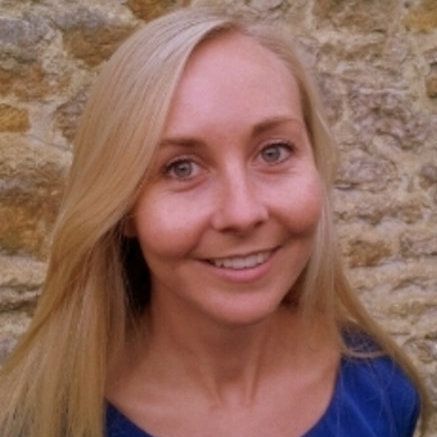News
Article
Sleep Interventions May Help Reduce Psychosis Risk in High-Risk Young Adults
Author(s):
A proof-of-concept trial shows a program that addresses sleep pressure, circadian rhythm and hyperarousal in adolescents and young adults receiving mental health care is promising.
Felicity Waite, DClinPsy, BSc
Credit: ResearchGate

An intervention designed to target sleep pressure, circadian rhythm and hyperarousal over a series of hour-long sessions with psychologists may be feasible for clinical application in adolescents and young adults at ultra-high risk of psychosis, according to new research.1
In proof-of-concept data from a University of Oxford research team, the investigative psychological SleepWell intervention was associated with reduced insomnia and other sleep disruption, and psychotic experiences when combined with usual care in participants aged 14 – 25 years old who were receiving mental health services.
The outcomes suggest the targeted intervention may be an effective treatment for sleep issues among young mental health patients at the greatest risk of psychosis.
The interplay of sleep and mental health is highly influential and deeply evidenced. In an interview with HCPLive last year, Gina Poe, PhD, the Eleanor Leslie Chair for Innovative Brain Research at UCLA, explained that a significantly impacted factor of sleep health among patients with psychiatric conditions is the transition to rapid eye movement (REM) stage, during which sleep spindles occur and the brain is essentially “reformatted and updated with new information.”2
“That’s really important to mental health,” Poe explained. “People with schizophrenia, for example, don’t have many sleep spindles, or they’re very small or short.” In fact, she cited research from a Boston lab that showed restoring sleep spindles in such patients could benefit their memory and learning.
Investigators led by Felicity Waite, DClinPsy, BSc, of the department of experimental psychology at Oxford, sought to establish the feasibility and acceptability of a randomized, controlled trial assessing SleepWell’s benefit for reduced psychotic experiences in adolescents and young adults at ultra-high risk of psychosis. They additionally sought to provide a proof-of-concept for said potential clinical efficacy with SleepWell.
Delivered by psychologists and followed through weekly clinical supervision, SleepWell intervention seeks to promote daytime activities in patients that would then result in greater night-time tiredness; it does so through wearable technology feedback promoting routine movement and exercise and establishing morning routines that better circadian alignment in patients.
The identified ultra-high risk population of young mental health patients frequently experience poor outcomes with depression and other conditions; current treatments for said patients are limited and new approaches are needed, Waite and colleagues wrote.
“The common, non-specific occurrence of sleep problems across mental health problems might hold particular meaning when considered from a network perspective, in which the presentations of mental health problems are understood to reflect dynamic networks of interacting symptoms,” investigators wrote. “The implication is that targeting these common factors might lead to a reduction in the specific treatment target and also to benefits across the network of symptoms.”
The team conducted a parallel-group, single-blind, randomized, controlled feasibility assessment across a pair of National Health Service (NHS) trusts in England. Eligible patients were 14 – 25 years old, with a history of mental health service and deemed at ultra-high psychosis risk per the Comprehensive Assessment of At-Risk Mental States. Patients additionally had current sleep problems, per scores of ≥15 on the self-reported Insomnia Severity Index (ISI).
Investigators randomized patients 1:1 to either SleepWell plus usual care or lone usual care. Patients randomized to the intervention program underwent approximately 8 hour-long sessions over 12 weeks; Waite and colleagues assessed patients at 0, 3, and 9 months for outcomes. Their key feasibility component outcomes included patients identified, recruited and retained, treatment uptake, and completion of data. The acceptability of treatment was measured per Abbreviate Acceptability Rating Profile (AARP).
Regarding clinical component outcomes, the team sought a primary endpoint of insomnia at 3 and 9 months per ISI, as well as safety outcomes in all patients.
The team screened 67 young patients with mental health care from November 2020 – January 2022; among them, 40 (60%) were recruited for the trial due to their ultra-high risk of psychosis. Mean patient age was 16.9 years old, and 19 patients each identified as male or female (48%). A majority of patients were White (80%). Investigators randomized 21 patients to SleepWell and 19 to lone usual care.
All but 1 patient (98%) completed the primary outcome assessment at 3 and 9 months; all patients provided data in ≥1 follow-up visit. Another 20 (95%) of patients in the SleepWell arm received the prespecified minimum treatment dose of ≥4 sessions.
Median treatment acceptability per AARP was 48—the maximum possible score on the scale . Regarding clinical outcomes, the SleepWell intervention arm reported a reduction in insomnia severity (ISI mean difference, -8.12; 95% CI, -11.60 to -4.63) versus usual care at 3 months. The difference was sustained at 9 months (ISI adjusted mean difference, -5.83; 95% CI, -3.81 to -1.52).
Regarding safety outcomes, 8 adverse events were reported in 6 participants—4 of whom were receiving SleepWell (19%). One serious adverse event resulting in a hospital admission occurred in the SleepWell arm; another patient in the lone usual care arm transitioned to psychosis. Neither event was relevant to the trial treatment or procedures.
Investigators concluded a randomized controlled trial of SleepWell as a targeted psychological sleep therapy for young patients at ultra-high risk of psychosis may be feasible.
“Patients can be retained in the trial and assessments done by masked assessors,” they wrote. “Uptake of the sleep therapy was high, and we found preliminary evidence of sustained reductions in sleep problems. A definitive multicenter trial is now needed.”
References
- Waite F, Černis E, Kabir T, et al. A targeted psychological treatment for sleep problems in young people at ultra-high risk of psychosis in England (SleepWell): a parallel group, single-blind, randomised controlled feasibility trial. Lancet Psychiatry. 2023;10(9):706-718. doi:10.1016/S2215-0366(23)00203-1
- Kunzmann K. Gina Poe, PhD: How Psychiatric Diseases Impact Sleep Health. HCPLive. Published May 27, 2022. https://www.hcplive.com/view/gina-poe-how-psychiatric-diseases-impact-sleep-health





